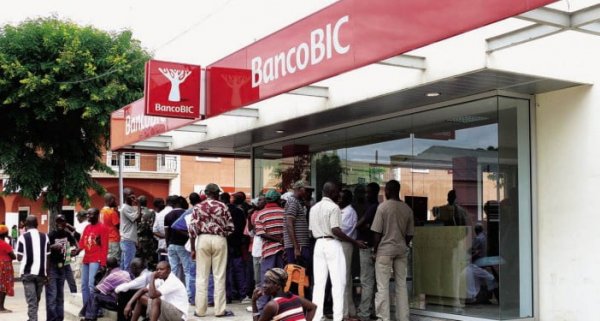Mário Nascimento argued that, instead of "making waves, beyond those that are really necessary", it is necessary to look at the phenomena and identify what is happening.
The person responsible, who was speaking to Lusa on the sidelines of the II Banking Sustainability Conference, promoted this Wednesday by Abanc, stressed that a profound restructuring of the sector is underway, both from the point of view of regulatory requirements and from the point of view of market demands.
According to the president of Abanc, at the same time, banks are in the process of internal restructuring, with the digitalization of services and the introduction of digital channels for accessing services.
"And in these processes there are always some negative effects and some of them are, clearly, the reduction of physical channels of distribution of banking services, in which we can include the branches. Of course, the branches are reduced, taking into account the resources that are being used in another way and in a more efficient way, this implies the closure and dismissal of people", he said.
For Mário Nascimento, the dismissal of people "is always sad", but he assured that the sector always has the prospect of, in those situations where it is possible, not opting for that route but instead relocating staff, which, he acknowledged, is not it is always possible.
"But it is not because there is a crisis process or a purposeful process or because there is simply a process of reducing costs, this represents these dynamics that the Angolan banking market is going through," he said.
The president of Abanc stated that, "from the customer's point of view it is not an alarming situation, from the workers' point of view it is not an alarming position".
"We don't see this with any alarmism, we just see it with some regret, from a social point of view, from a human point of view", he stressed.
Last week, the administration of Banco Internacional de Comércio (BIC) admitted the possibility of closing 40 of the 230 branches it has in Angola and dismissing around 300 workers, but, a few days later, the bank's executive president said he was talking only in hypothetical terms.
Regarding the complaints and concerns that some banks present about difficulties in acquiring currency at the expense of others, Mário Nascimento said that he does not believe that there is any discrimination, because the banks all have access to the Bloomberg platform.
"We are aware, because there are banks that send us this message, we have already held meetings with the National Bank of Angola and the banks also participated, some of them, and the attribution process was clarified, which is by offer and everyone is clear how it is the functioning of the system for allocating these currencies", he said.
For the president of Abanc, it is normal for banks to complain, given that the level of supply today is a third of what banks and the market were used to.
"Of course, no bank today is satisfied with the level of offers, but beyond this available information, we have no other information that allows us to sustain that there is discrimination of another nature, of some banks to the detriment of others", he stressed.
Regarding the situation at Banco Económico, Mário Nascimento said that Abanc has been monitoring it, as well as the banking system as a whole, adding that the central bank is ultimately responsible for the entire process.
Banco Económico, formerly Banco Espírito Santo Angola (BESA), has been in a restructuring process for several years, facing a situation of technical bankruptcy, according to the newspaper Expansão, and last year, the central bank said it continued to monitor the recapitalization plan of this banking institution.
Mário Nascimento said that there are institutional infrastructures, namely the Deposit Guarantee Fund and the Resolution Fund, which are institutions that provide more confidence and solidity to the market, and he does not believe that there is any decision that would jeopardize the solidity of the system.
"So we will wait, any solution has to be so that it does not create distrust, does not create instability and also does not create costs beyond those that are already the costs associated with its own process, which is already long", he concluded.







